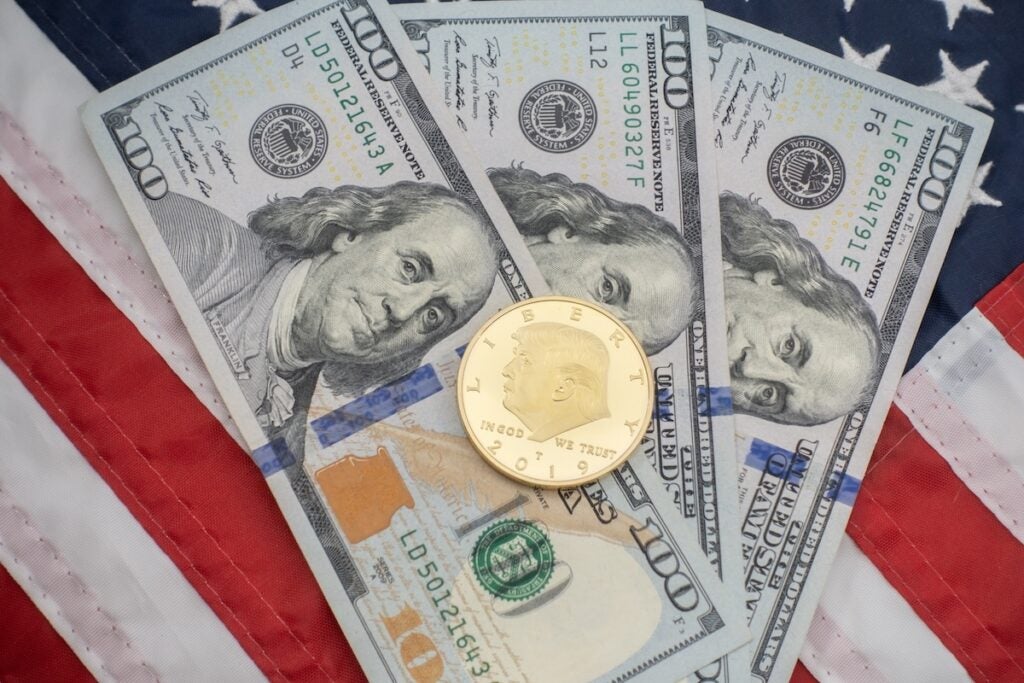Inside Trump’s Exclusive Dinner: The Memecoin Moguls Who Attended
Former U.S. President Donald Trump recently hosted a high-profile dinner at his Mar-a-Lago estate, drawing influential figures from the cryptocurrency world—particularly memecoin entrepreneurs. The guest list included Tron founder Justin Sun, along with other prominent crypto personalities, sparking discussions about the growing ties between political figures and the volatile digital asset industry. The event, held last week, highlights Trump’s deepening engagement with crypto leaders as he campaigns for the 2024 presidential election.
Key Attendees and Their Crypto Influence
The dinner brought together a select group of individuals who have shaped the memecoin market, known for its speculative and community-driven projects. Justin Sun, a controversial yet pivotal figure in blockchain circles, confirmed his attendance via social media. Other rumored guests included:
- Elon Musk-affiliated developers behind Dogecoin and Shiba Inu
- Venture capitalists specializing in altcoin investments
- Social media influencers with millions of crypto-focused followers
According to blockchain analytics firm Chainalysis, memecoins accounted for over $60 billion in market capitalization at their 2024 peak, demonstrating their outsized cultural and financial impact despite skepticism from traditional investors.
The Political-Crypto Nexus Intensifies
Trump’s outreach to crypto figures aligns with his recent pro-blockchain policy statements. In May 2024, he pledged to “end hostility toward crypto” if reelected—a stark reversal from his 2019 dismissal of Bitcoin as “a scam.” Political analysts suggest this pivot targets younger, tech-savvy voters and donor networks.
“This dinner symbolizes the maturation of crypto as a political force,” said Dr. Linda Schmidt, Georgetown University professor of technology policy. “Where candidates once courted Wall Street, they’re now actively seeking validation from decentralized finance leaders.”
However, critics warn of risks in embracing an industry rife with speculation. SEC Chair Gary Gensler recently testified that 80% of memecoin projects exhibit characteristics of unregistered securities, though enforcement remains challenging due to jurisdictional gray areas.
Memecoin Market Reactions
News of the event triggered immediate price fluctuations:
- Trump-themed memecoins (e.g., MAGA Coin) surged 300% before settling at 150% gains
- Tron’s native token TRX saw 12% growth within 24 hours
- Dogecoin trading volume spiked 40% amid rumors of Musk-related announcements
Crypto exchanges reported unusual options activity, with Deribit data showing a 200% increase in bullish contracts for political meme assets. “The market is pricing in regulatory tailwinds,” noted Markus Thielen, head of research at Matrixport. “But these assets remain hypersensitive to celebrity endorsements rather than fundamentals.”
Ethical Questions and Industry Divisions
The gathering reignited debates about appropriate boundaries between policymakers and high-risk digital asset sectors. While Ethereum co-founder Vitalik Buterin has consistently criticized memecoins as “distractions,” Sun and others argue they democratize finance.
“Memecoins bring people into crypto who’d never buy Bitcoin,” Sun tweeted after the event. “Their cultural value is undeniable.” Contrastingly, former CFTC chairman Timothy Massad cautioned: “When political figures legitimize purely speculative assets, retail investors often pay the price.”
Federal Election Commission records show crypto executives have donated $27 million to 2024 campaigns thus far—a 600% increase from 2020. Super PACs associated with digital assets now rank among the top 15 political donors.
What This Means for Crypto Regulation
The Mar-a-Lago dinner occurs as Congress debates two competing crypto frameworks:
- The Digital Asset Market Structure Bill (bipartisan, favors industry growth)
- The Cryptocurrency Accountability Act (emphasizes consumer protections)
With Trump positioning himself as the “crypto president” and the Biden administration taking a more cautious approach, digital assets may become a rare wedge issue in the upcoming election. Crypto exchange Coinbase reports 52 million Americans now own digital assets—a critical voting bloc concentrated in swing states.
The Road Ahead: Politics Meets Web3
As campaigns intensify, observers expect more high-visibility collaborations between politicians and crypto figures. Upcoming industry conferences like Consensus and Mainnet will likely feature political panels, while crypto super PACs plan $100 million in targeted ads.
“This isn’t just about donations—it’s about mobilizing a passionate community,” remarked GOP strategist Mike Murphy. “A single Trump meme can reach further than traditional ads.” Meanwhile, consumer advocates urge candidates to address crypto scams, which the FTC estimates have cost Americans $3 billion since 2021.
The intersection of memecoins and politics raises fundamental questions about financial populism in the digital age. As both industries evolve, their relationship will undoubtedly shape policy, markets, and perhaps even electoral outcomes. For those tracking this space, subscribing to regulatory updates from the SEC and FEC provides critical insights into this rapidly developing story.
See more Business Focus Insider Team

